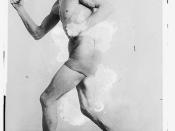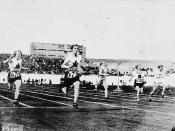THE ROLES OF TELEVISION
POSITIVE INFLUENCES
Positive, according to Baron & Byrne (2004) includes being "nice" and saying sincere things to others. They further state that compliments, praise, congratulations and positive evaluation are almost guaranteed to cause pleasure. Passer & Smith (2004) explain that positive influence can be further cemented through positive reinforcement. Positive reinforcement, they explained, occurs when a response is strengthened by the subsequent presentation of a stimulus. This stimulus can be food, drink, attention, praise or money. Etsy & Fisher (1991) as cited in Santrock (2004) confirm that positive behaviour can be learnt through television and that television can have positive influences on children's development by presenting motivating educational programmes, increasing children's information about the world beyond their immediate environment and providing models for prosocial behaviour.
Television also can teach children that it is better to behave in positive, prosocial ways than in negative, antisocial ways according to Leifer (1973) cited by Santrock (2004).
Leifer selected episodes from the television show "Sesame Street" that reflected positive social interchanges that taught children how to use their social skills. Leifer uses, for example, in one interchange, two men were fighting over the amount of space available to them; they gradually began to cooperate and to share the space. Children who watched these episodes copied these behaviours, and in later social situation they applied the prosocial lessons they had learned. These findings were confirmed by Bandura's Observational Learning as cited in Woolfolk (1995) where he states that observational learning, also called imitation or modelling. Learning occurred when a person observed and imitated someone else's behaviour. He further states that the capacity to learn behavioural patterns by observation eliminated tedious trial and error learning and that observational learning took less time than Operant conditioning.
This statement by Bandura was confirmed by...


